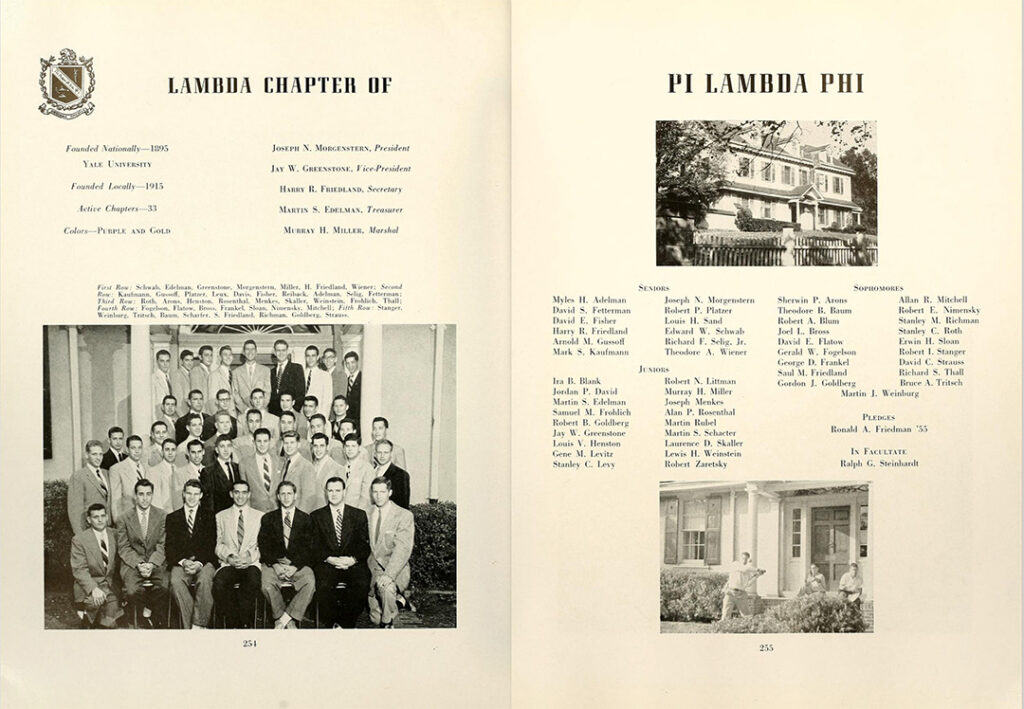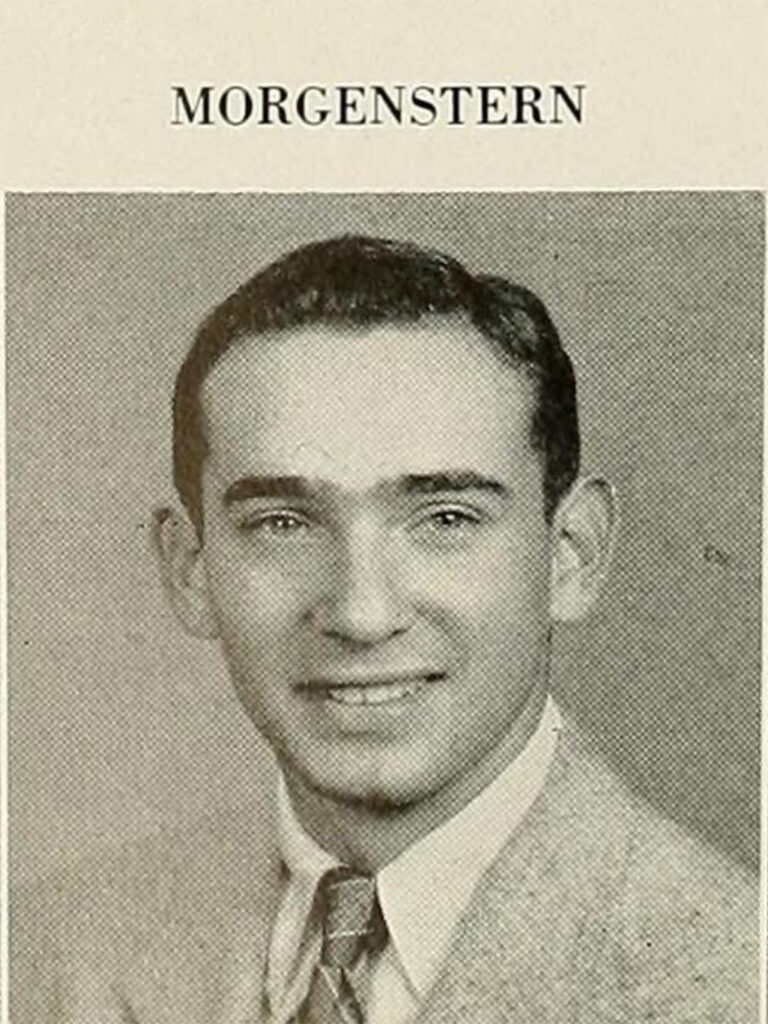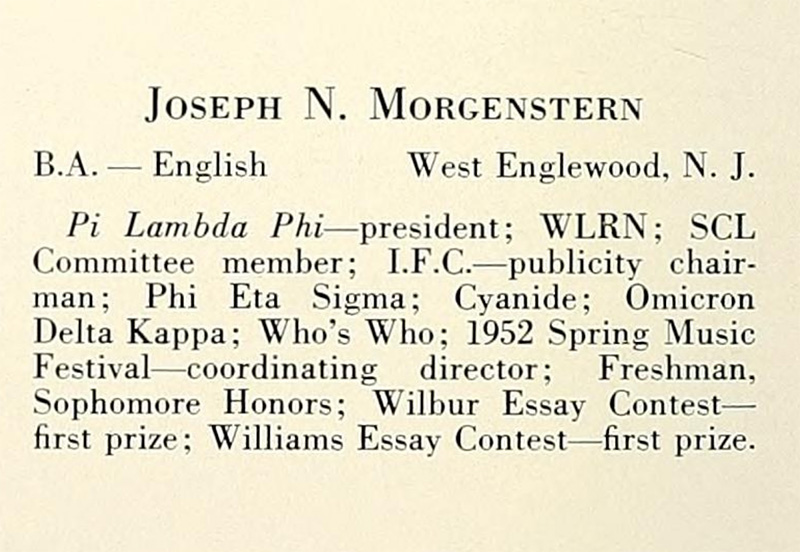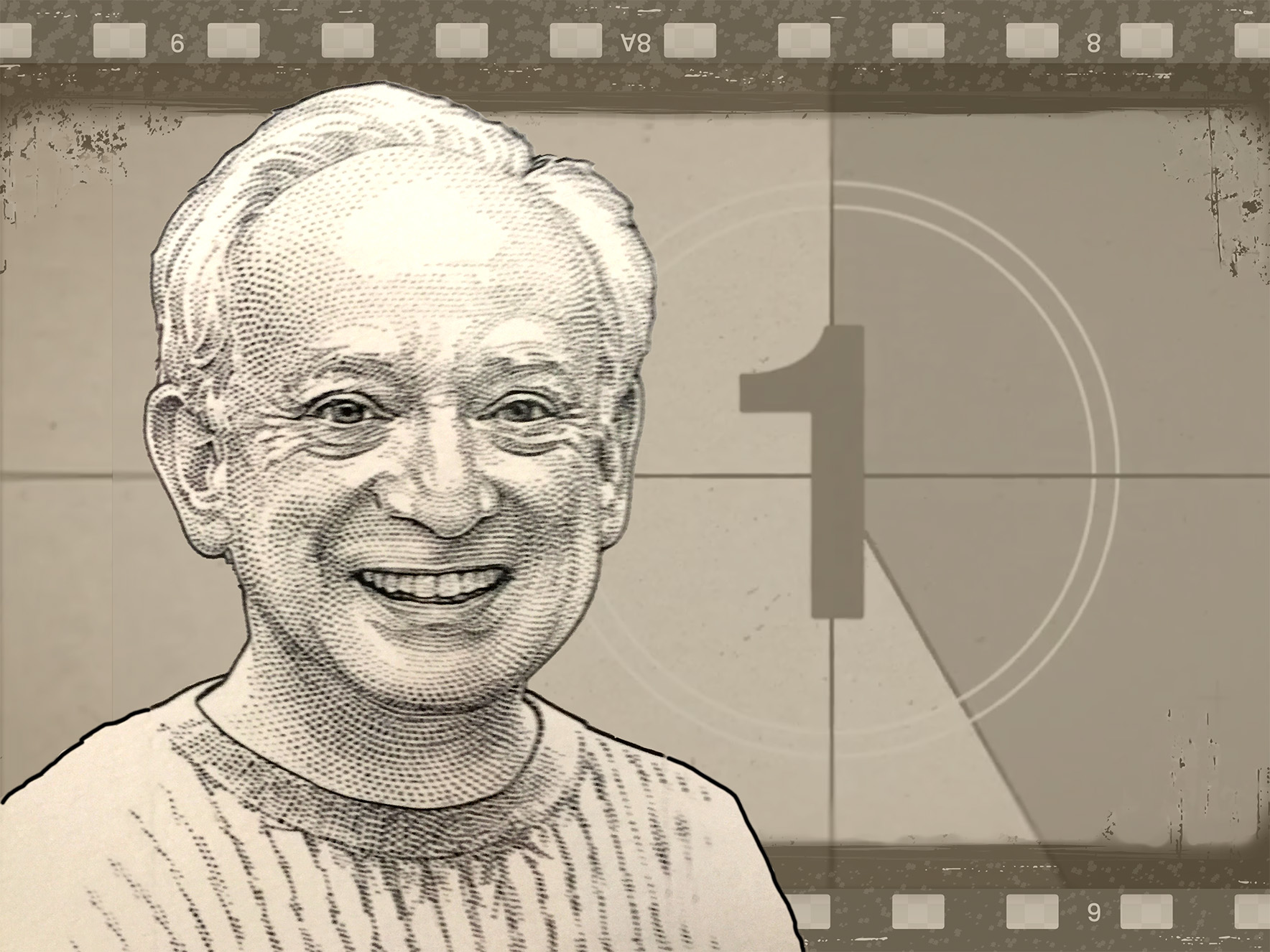
Joe Morgenstern – Pulitzer Prize winning film critic
As an introverted, curious kid, Joe Morgenstern ’53 (Lehigh), spent much of his youth at the Saturday matinees where he fell in love with movies. His passion for films and writing would propel him to a long and highly-acclaimed career as a film critic.
In 2005, Joe became only the third film critic to win the Pulitzer Prize for Criticism for his thoughtful, honest, and witty reviews. He has written for prestigious publications including the Wall Street Journal, Newsweek, The New York Times, The New Yorker, Rolling Stone, and Esquire.
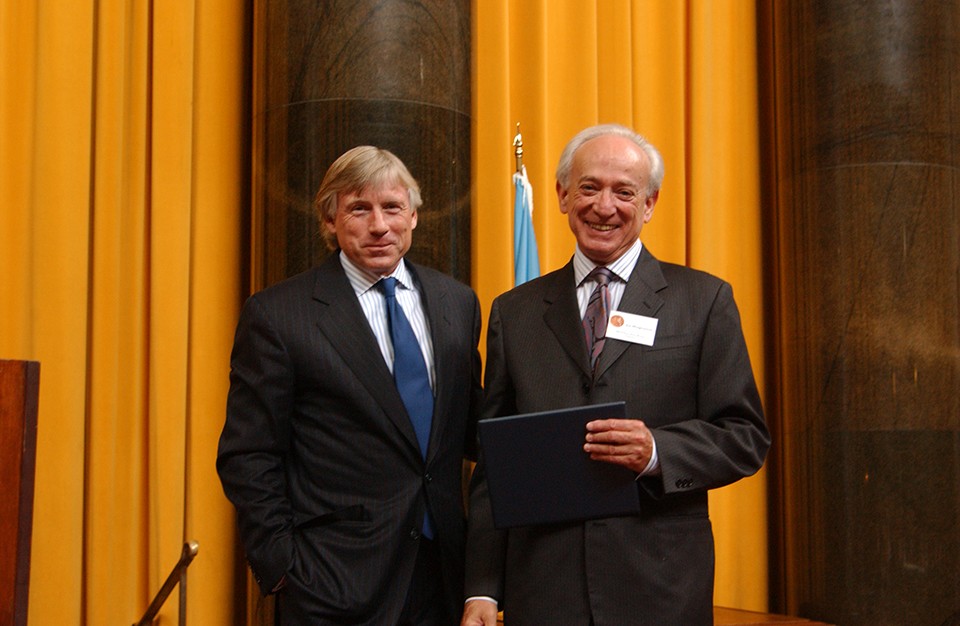
At 91, Joe is energetic, good-humored, vivacious and still as passionate about the big screen and writing than ever, and is currently in the process of writing a memoir.
The classic profile of a movie critic
Joe reflected on his childhood as “a smart but lonely kid spending huge amounts of time at the movies,” and later thought, “In retrospect, I was the classic profile of a movie critic.”
In an interview with Lehigh University, Joe said he started writing for the Brown & White because, “I was a smartass with opinions about everything.”
Joe admits that his mindset and writing matured with experience saying, “I think that’s the quality that made me a brash and readable movie critic at first. But I mellowed and calmed down. I realized that I never knew as much as I thought I did.”
What made him a good critic? He built a reputation as a trusted, recognizable human voice in journalism, saying, “I was not a great film scholar. My strength was as an essayist who can write entertaining stuff with feeling. I think that’s what people liked and responded to.”
A detour to TV land
Joe briefly dabbled in “the other side” of the industry, writing some TV scripts, including several episodes of Law & Order, and the TV movie The Boy in the Plastic Bubble, starring John Travolta.
When his TV movie debuted, Joe had a special audience, “I let my 7-year old daughter stay up past her bedtime to watch it. I was glancing at her anxiously to see how she was reacting, but her face revealed nothing. When I asked her what she thought, she said, ‘I thought it was very interesting and very boring.’”
Everyone’s a critic.
Though he enjoyed his foray into the script writing side, Joe admitted, “It didn’t come easily to me. I’m not a natural dramatist; I’m an essay writer. So I returned to print journalism.”
Choosing Pilam: “I was glad to join the bunch.”
After enjoying the freedom of leaving home and living on his own, Joe was faced with the prospect of living in a dorm. He said, “That led to the exciting prospect of joining a fraternity, and finding a like-minded group of people.”
“Pilam seemed to be a jovial and genial collegial group of people settled into a big attractive, kind of broken-down house that was once a mansion. The choice seemed simple, and I was very glad to join the bunch.”
“I learned how to live in a social setting and came a long way from that lonely isolated kid. By the time I left college, I was a socialized creature.”
Joe was elected Rex, though he recalls, “I didn’t lobby for the job, it just seemed to happen. You’re free to infer that the reason was my infinite charm, seductiveness, and wisdom.”
He considers his greatest achievement as solving the “peanut butter riddle.” He said, “there was this Gordian Knot whether we would serve chunky or creamy peanut butter at dinner, and I rallied the creamy peanut butter vote.”
The brother who “tipped the balance”
As an undergrad, Joe met brother Jon Epstein, who he remembered as “an endearing and funny guy who used to come back to house parties and play the piano and sing. When I was considering pledging Pilam, Jonny tipped the balance.”
Joe was also inspired by Epstein’s successful career as a producer for hit TV shows including Columbo, McMillan & Wife, Rich Man, Poor Man, and The Rat Patrol.
Wisdom for the re-opened chapter
Asked if he had any advice for the recently re-established chapter, Joe said “I’d like to think the new chapter will be a really welcoming, comfortable place. I’m all for a social setting that supports the academics.”
Feature image: Illustration by The Wall Street Journal. Background image by Freepik



